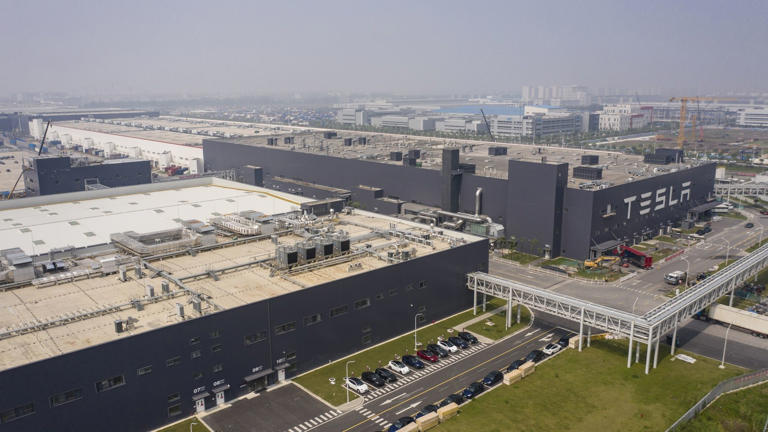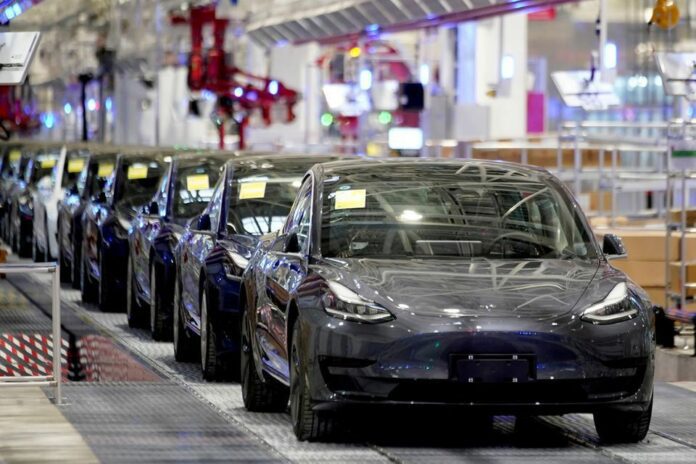Although the plant expansion’s first and second stages are already finished.
Tesla’s ambitions to expand its Shanghai factory have been put on hold because of Starlink data security worries, which could hinder the automaker’s ability to develop in China.

Data Issues
Bloomberg has spoken to insiders who claim that the so-called phase-three expansion was planned to expand the plant’s capacity to around 2 million vehicles annually. The start of it was anticipated for the middle of the year.
According to one of the people with knowledge of the situation, certain central government officials expressed alarm about the company’s strong presence in the biggest economy in Asia because of its connections to Elon Musk’s satellite network Starlink.
Beijing is growing concerned about data security and social stability. Tesla’s Starlink system will allow customers to circumvent China’s Great Firewall.
Both Tesla and Space Exploration Technologies. Led by Musk, who started launching Starlink satellites in 2019.
Before the opening of regular trading in New York at 5 am:
By 1 p.m., Tesla stock had already given up 2% of its previous gains. Public dissatisfaction with US electric vehicle (EV) makers has also increased at a time of heightened tensions between the US and China.
Around the weekend, Chinese Tesla owners flocked to dealers to vent their frustrations about being left out of the latest price cut. In 2021, Tesla vehicles will be banned from military and residential installations in China due to privacy concerns related to cameras built into the vehicles.
Strategic Growth
Stages one and two of Tesla’s development and expansion of its Shanghai factory are finished.
The factory that started building in 2019 will be able to produce 1 million Model 3 sedans and Model Y SUVs annually after upgrades are finished in 2022. The third-phase expansion would have required significantly more land and building space.
The future of the third phase is unknown, according to one of the participants, unless they receive additional information from senior central government officials.
The sources claim that Shanghai’s local authority supports Tesla.
In 2022, the Shanghai Tesla plant is anticipated to produce over 710,000 vehicles or around 52% of the company’s total global output.
While sales in China are slowing, Tesla has launched stores in Thailand as part of its continued Asian growth.
The automaker is also purportedly close to finalising a preliminary agreement to establish a facility in Indonesia where it will be possible to produce up to 1 million vehicles annually.
Obstacles and Rivalry
The consumer demand in China, which has the world’s largest automobile and EV industries, has been impacted by the slowing economic development and up until recently adhered to Covid Zero.
Tesla has lowered prices and maintained incentives in response to supply bottlenecks and months-long lockdowns.
These actions are essential because the December 2022 deliveries were reduced to about 56,000 units as a result of facility renovations and weak client demand, which temporarily suspended production. In the same period, a nearby rival company, BYD, shipped 111,939 EVs.
